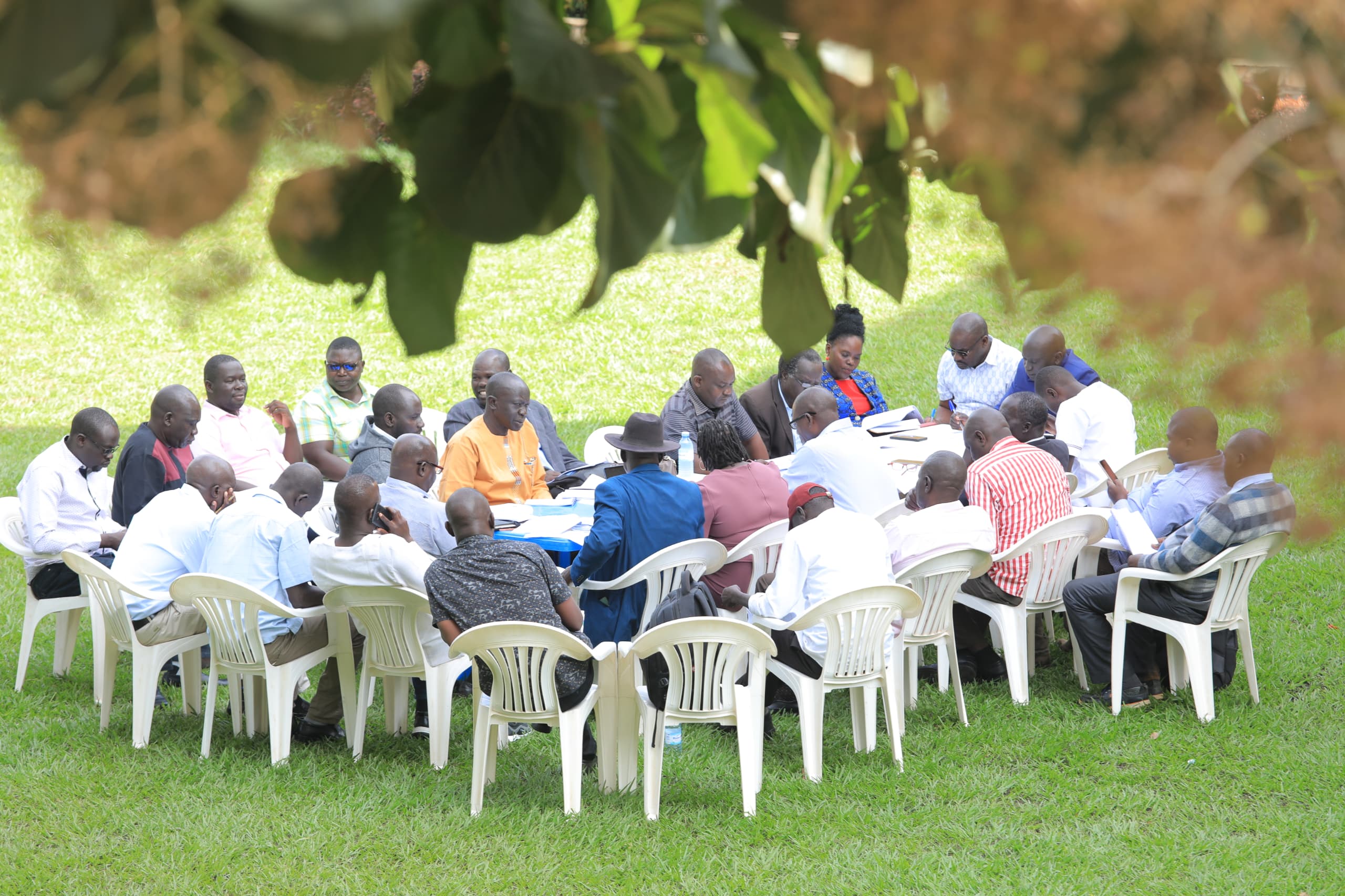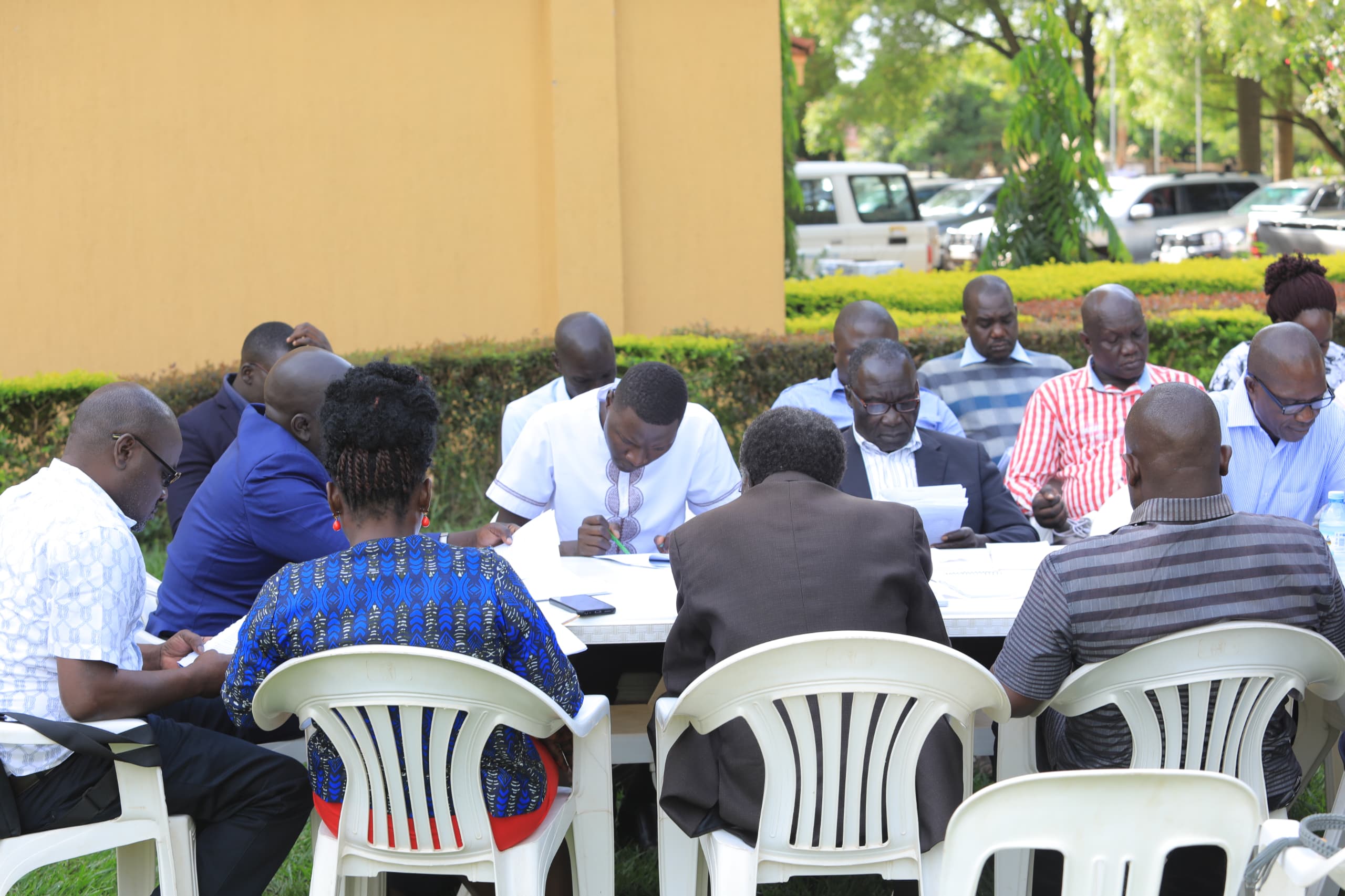Land policy consultation workshop in Lira emphasizes compatibility in land policy planning.
Tuesday November 05 2024
The second day of the Land Policy Consultation Workshop brought together stakeholders to discuss crucial aspects of land acquisition and development planning. The workshop, featuring keynote speaker Miss Dora Atikuru, addressed Uganda’s land policy framework and the importance of compatibility in land use for sustainable development.

Miss Atikuru Dora District physical planner Maracha District
"Land in Uganda belongs to the citizens of Uganda," stated Atikuru during her address, emphasizing that land can be acquired through various means, including sale, inheritance, customary practices, or as a gift. She noted that Uganda’s land policy aims to empower citizens with ownership while ensuring that land use aligns with development goals.

The district’s recently acquired physical development framework, funded by a World Bank systematic land adjudication and certification project, is expected to guide town councils in establishing orderly development plans. According to Atikuru, this framework is critical in defining the appropriate uses for specific land areas to ensure they benefit the local community and align with larger district goals.
A central theme of Atikuru’s speech was the concept of “compatibility” in land development, as mandated by Ugandan law. She explained, “The law says compatibility. We are supposed to make developments compatible with buildings,” referencing the current hotel venue as a compatible use within a designated commercial area. “If a site is planned as commercial, then a hotel or similar commercial establishment is compatible with its surroundings.”
Highlighting potential challenges in incompatible land use, Atikuru illustrated with an example of noise-sensitive institutions, like hospitals. She pointed out that situating a noisy religious institution near a hospital would contradict planning principles, as such settings require peace for effective patient care.

Atikuru urged developers to consult physical planners to verify that their proposed land use aligns with local regulations and is suitable for its intended purpose. "Consult with the physical planning office to ensure the proposed land use for the acquired property is compatible with the surrounding area and meets the necessary standards,” she advised. Physical planners can confirm that the size and intended use of a property align with district development objectives, contributing to a cohesive and sustainable urban landscape.
With Uganda’s population and urban centers growing rapidly, the push for orderly development is critical for minimizing conflicts and enhancing quality of life. The workshop underscored the need for systematic planning, land use compatibility, and stakeholder collaboration to support Uganda’s vision for growth.
IN SUMMARY
The second day of the Land Policy Consultation Workshop brought together stakeholders to discuss crucial aspects of land acquisition and development planning. The workshop, featuring keynote speaker Miss Dora Atikuru, addressed Uganda’s land policy framework and the importance of compatibility in land use for sustainable development.

Miss Atikuru Dora District physical planner Maracha District
"Land in Uganda belongs to the citizens of Uganda," stated Atikuru during her address, emphasizing that land can be acquired through various means, including sale, inheritance, customary practices, or as a gift. She noted that Uganda’s land policy aims to empower citizens with ownership while ensuring that land use aligns with development goals.

The district’s recently acquired physical development framework, funded by a World Bank systematic land adjudication and certification project, is expected to guide town councils in establishing orderly development plans. According to Atikuru, this framework is critical in defining the appropriate uses for specific land areas to ensure they benefit the local community and align with larger district goals.
A central theme of Atikuru’s speech was the concept of “compatibility” in land development, as mandated by Ugandan law. She explained, “The law says compatibility. We are supposed to make developments compatible with buildings,” referencing the current hotel venue as a compatible use within a designated commercial area. “If a site is planned as commercial, then a hotel or similar commercial establishment is compatible with its surroundings.”
Highlighting potential challenges in incompatible land use, Atikuru illustrated with an example of noise-sensitive institutions, like hospitals. She pointed out that situating a noisy religious institution near a hospital would contradict planning principles, as such settings require peace for effective patient care.

Atikuru urged developers to consult physical planners to verify that their proposed land use aligns with local regulations and is suitable for its intended purpose. "Consult with the physical planning office to ensure the proposed land use for the acquired property is compatible with the surrounding area and meets the necessary standards,” she advised. Physical planners can confirm that the size and intended use of a property align with district development objectives, contributing to a cohesive and sustainable urban landscape.
With Uganda’s population and urban centers growing rapidly, the push for orderly development is critical for minimizing conflicts and enhancing quality of life. The workshop underscored the need for systematic planning, land use compatibility, and stakeholder collaboration to support Uganda’s vision for growth.